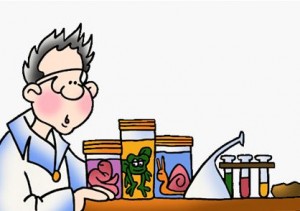

National Qualifications - Sciences blog
 Science Development Officers representing Biology, Chemistry and Physics have been very busy this week delivering CPD to hundreds of science teachers from Aberdeenshire and Highland regions on their subject INSET days.
Science Development Officers representing Biology, Chemistry and Physics have been very busy this week delivering CPD to hundreds of science teachers from Aberdeenshire and Highland regions on their subject INSET days.
The venue for the Aberdeenshire teachers’ meeting was Westhill Academy and the Highland teachers’ meeting was held in Millburn Academy in Inverness.
The main focus of the CPD was an update on the latest progress in the revised Highers in the four sciences. The powerpoint presentations from these events will be made available in the NQ Science Glow Groups by the end of this week.
MoreHi Folks! Happy New Year from everyone on the National Qualifications Sciences Team at LTS! We hope you’ve had a lovely restful break and wish you all the best for 2011!
The NQ Sciences team is looking forward to the busy few months ahead! We will be working with our key partner organisations at engagements with the profession as the launch of the CfE-inspired Highers in June 2011 comes ever closer. We will also be supporting the work of SQA as they consult with teachers all over the country on the design of the new Advanced Higher Sciences (in time for a June 2012 launch date!). In addition, we will continue to support the development of the new CfE qualifications at National 4 and 5 levels as part of the Qualification Design teams.
Watch this space for regular news updates on all of these activities!
MoreOK Chemistry Teachers - here’s a little Christmas challenge to get you in the mood for teaching ‘open-ended questions’ in the new CfE-inspired Higher Chemistry!
All you have to do is to watch the video-clip above from a ‘CSI:Miami’ episode entitled ‘Dissolved’ (you’ll soon see why it got that name!) and then try to answer the open-ended question below! Remember that there are many correct answers, and the purpose is to get you to exercise your thinking skills! Have fun!
An internet discussion board on ‘Bad Chemistry’ has an entry referring to the TV drama ‘CSI: Miami’.
‘Last night’s episode showed the deceased victim floating in a swimming pool contaminated with sodium hydroxide. The concentration was high enough to eat through glass. When the CSI guys realised it was an alkali, they needed to neutralise it to retrieve the body, so they sent one of the team to the local grocery store for vinegar. They proceeded to pour the vinegar from four litre jugs into the pool, dropping the pH from 13 to exactly 7.0 – all within a few seconds, and without any stirring!’
Using your knowledge of chemistry, comment on whether the events described in CSI: Miami could take place.
MoreLTS have commissioned teachers to produce a variety of resources to support the new Highers in Biology and Human Biology. These resources will include;
* Teacher Support Notes
* Associated Learner Activities
* a range of exciting, topical ’Case Studies’ supporting the development of key scientific skills
The support notes will cover all areas of both Higher courses, with a particular focus on new content. These resources are now reaching first draft stage and should be available on the LTS NQ Biology page early next year. Early versions of these resources have already begun to appear on the GLOW NQ Biology page.
Watch this space for more information!
MoreThe Scottish Space School 2011 will take place at Strathclyde University from 12th to 17th June next year. This fantastic residential experience is open to S5 pupils currently studying maths and science subjects at Higher level. Last year, 12 lucky Space School students were selected to go on a follow-up learning visit to Houston, Texas.
Applications to participate should be made via the Scottish Space School website. Don’t miss out! Apply now!
Moreeight="364">
The new Highers in Chemistry and Physics contain a ‘Researching Chemistry’ half-unit in which students learn about the key skills of scientific enquiry, and then apply and develop these skills via investigation into a topical scientific issue.
Teachers will find the BBC video clip above from the TV programme ‘Bang Goes the Theory’ on ‘How to Investigate the Unknown’ to be a useful introduction to the concepts involved in scientific research. It is based on research into factors affecting the effectiveness of ‘canister rockets’, but could be re-applied to any other research topic.
The weblink also gives interesting additional background reading and suggested activities. The resource could also be used to introduce investigative activities in any scientific context, especially Adavanced Higher investigations.
Enjoy!
MoreOpen-ended questions will be included in the new Physics and Chemistry Highers. They are designed to promote creative thinking and to challenge students to take the initiative and push the boundaries in their own learning.
This short, thought-provoking video from the TED Talks series shows American maths teacher Dan Meyer deconstructing traditional Physics and Maths questions, in order to generate discussion and engage learners through real life situations. His ideas are relevant for engaging learners in Biology and Chemistry at all levels, as well as in Physics.
One of the most interesting things Meyer does is to boil the maths/ physics question down to an everyday context, thereby opening it up to students’ own experience and engaging learners. In this way, Meyer states that every pupil can contribute to discussing and solving a maths/physics problem, whereas in the past they ‘switched off’.
Does this parallel what we are trying to achieve with open-ended questions?
More The brand-new CfE-inspired Highers in Chemistry, Physics, Biology and Human Biology will be available for uptake by early-adopting schools from 2011 -2012. LTS are currently working in partnership with SQA, SSERC and the Scottish Government to develop a package of support which can be offered to early-adopting schools.
The brand-new CfE-inspired Highers in Chemistry, Physics, Biology and Human Biology will be available for uptake by early-adopting schools from 2011 -2012. LTS are currently working in partnership with SQA, SSERC and the Scottish Government to develop a package of support which can be offered to early-adopting schools.
Andy Shield at SQA is currently collating a list of schools who may be interested in adopting the new Highers in CHEMISTRY and PHYSICS next year. If you think your school may be interested, or you would like more information, please contact Andy as soon as possible at [email protected] .
More One of the main objectives of the current revision of the new Higher Sciences is to promote deeper understanding, creativity and analytical thinking, in line with the principles of Curriculum for Excellence. In order to help achieve this, SQA plan to include a small number of so-called ’open-ended questions’ within the new Higher examinations in Chemistry and Physics .
One of the main objectives of the current revision of the new Higher Sciences is to promote deeper understanding, creativity and analytical thinking, in line with the principles of Curriculum for Excellence. In order to help achieve this, SQA plan to include a small number of so-called ’open-ended questions’ within the new Higher examinations in Chemistry and Physics .
Two excellent resources entitled ‘Support Materials for Open Ended Questions in Higher Chemistry‘ and ‘Support Materials for Open Ended Questions in Higher Physics’ have recently been published on the NQ Support page of the LTS website. These resources provide a rationale for the introduction of OEQs in each subject, describe what ‘open-ended questions’ are, give a number of examples of questions with sample pupil answers, and advise on the marking of open-ended questions.
More information from recent extensive pupil trials of open-ended questions to follow in another post!
More Calling Scottish teachers of National Qualifications in Chemistry, Physics & Biology! Have you checked out our all-new NQ Science Glow Groups?
Calling Scottish teachers of National Qualifications in Chemistry, Physics & Biology! Have you checked out our all-new NQ Science Glow Groups?
In these Glow groups you’ll find ’hot of the presses’ resources which have been produced to support the new Highers, as well as useful weblinks. There’s also a blog updating you on the latest news in your subject, a forum where you can ask questions or discuss with other practioners, and a link to ‘CPDfind’ to assist professional development.
Why not have a look and see what’s there for you!
NQ Chemistry Glow Group
NQ Physics Glow Group
NQ Biology Glow group
More
Find us on